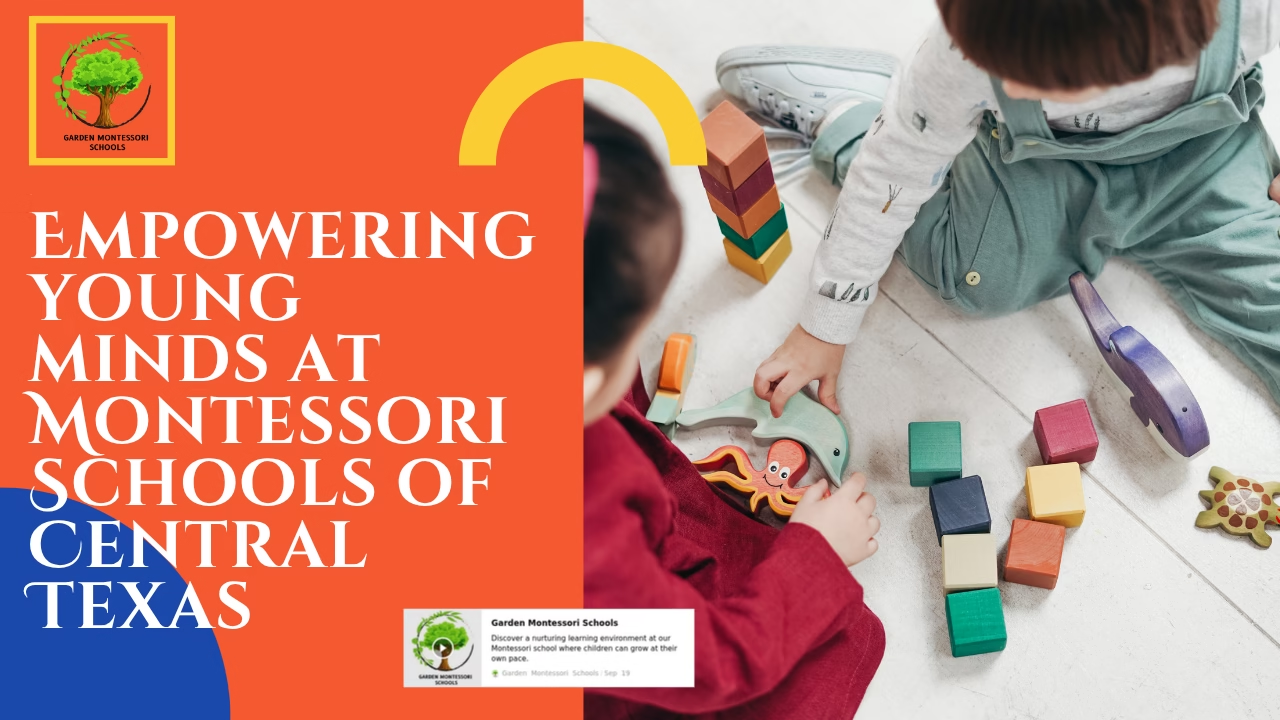What is Montessori Education?
Montessori education is a child-centered approach developed by Dr. Maria Montessori over a century ago. It emphasizes independence, hands-on learning, and respect for a child’s natural psychological development. Garden Montessori School embodies these principles, creating a nurturing environment where children can explore and learn at their own pace. The benefits of Montessori education include fostering curiosity, self-discipline, and a lifelong love for learning. By allowing children to engage with learning materials directly, they gain a deeper understanding and appreciation of the world around them, laying a strong foundation for their future.
Benefits of Montessori Education
- Individualized Learning: One of the main benefits of Montessori education is its focus on individualized learning. Each child is seen as unique, with their own strengths and interests. At Garden Montessori School, teachers tailor lessons to suit each child’s needs, allowing them to progress at their own pace.
- Hands-On Learning: Montessori classrooms are equipped with specially designed materials that encourage hands-on learning. This approach helps children understand complex concepts through direct experience. For example, at Garden Montessori School, children use manipulatives to grasp mathematical concepts, which makes learning both fun and effective.
- Development of Independence: Montessori education fosters independence from an early age. Children are encouraged to take care of their own needs, such as dressing themselves or preparing snacks. This promotes self-confidence and self-discipline. At Garden Montessori School, we see children developing a sense of responsibility and pride in their achievements.
- Encouragement of Critical Thinking: Another significant benefit of Montessori education is the emphasis on critical thinking and problem-solving skills. Children are given the freedom to explore and ask questions, leading to a deeper understanding of the world around them. Garden Montessori School supports this by providing a stimulating environment where curiosity is encouraged.
- Social Skills and Community Feeling: Montessori classrooms are typically mixed-age, allowing older children to mentor younger ones. This setup fosters a sense of community and helps children develop strong social skills. At Garden Montessori School, we see friendships blossom and children learning the importance of cooperation and empathy.
- Love for Learning: Perhaps one of the most profound benefits of Montessori education is the love for learning it instills in children. By allowing them to follow their interests and learn at their own pace, children develop a genuine enthusiasm for knowledge. Garden Montessori School nurtures this passion, preparing children for lifelong learning.
Why Choose Garden Montessori School?
At Garden Montessori School, we are dedicated to providing an authentic Montessori experience. Our teachers are highly trained and passionate about the Montessori philosophy. We offer a nurturing environment where children feel safe and valued, allowing them to reach their full potential. Choosing Montessori education at Garden Montessori School means choosing a path that respects and nurtures your child’s individuality. The benefits of Montessori are evident in the confident, independent, and compassionate learners who graduate from our program.
Our commitment to the Montessori method ensures that children receive a holistic education that addresses their intellectual, emotional, and social development. The benefits of Montessori education are numerous and far-reaching, making it an excellent choice for families seeking a comprehensive and enriching educational experience for their children.
Conclusion
The benefits of Montessori education are numerous and far-reaching. From individualized learning and hands-on experiences to fostering independence and critical thinking, Montessori education offers a holistic approach to child development. At Garden Montessori School, we are proud to offer a program that embodies these principles and supports children in becoming lifelong learners. If you’re considering Montessori education for your child, we invite you to visit Garden Montessori School and see firsthand the benefits of Montessori in action. Our doors are always open, and we would love to show you how our Montessori environment can benefit your child.
FAQs
What makes Montessori education different from traditional education?
Montessori education focuses on individualized learning, hands-on activities, and fostering independence, allowing children to learn at their own pace.
At what age can my child start attending a Montessori school?
Children can start Montessori education as early as 18 months in toddler programs, with preschool programs typically beginning at age 3.
How do Montessori schools handle discipline?
Montessori schools use positive discipline, teaching self-regulation and problem-solving skills to encourage better choices and understanding of consequences.
Are Montessori schools suitable for children with special needs?
Yes, the individualized learning approach in Montessori education can be tailored to support children with special needs, creating an inclusive environment.
How do Montessori students transition to traditional schools?
Montessori students typically transition well due to their strong foundation in critical thinking, independence, and adaptability to new environments.



